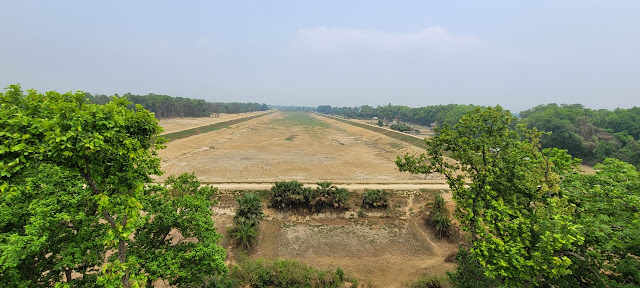Lock up your leading ladies : The Economist
http://www.economist.com/world/asia/displaystory.cfm?story_id=9525315
Lock up your leading ladies
Jul 19th 2007
From The Economist print edition
http://www.economist.com/world/asia/displaystory.cfm?story_id=9525315
A curious democratic roadmap
IN MOST countries, ambitious generals and unelected governments have a poor track record of delivering democracy. But this is still the promise to Bangladesh made by the generals who assumed emergency powers in January and the pliable administration they installed. This week the election commission published a roadmap to parliamentary elections to be held before the end of 2008. But the government was silent on when the state of emergency will be lifted.
The next day the government reminded people of one reason why their constitutional rights remain suspended. It stepped up its purge of corrupt politicians, officials and businessmen, more than 150 of whom have been arrested since the beginning of the year.
The police arrested and jailed Sheikh Hasina Wajed, prime minister between 1996 and 2001. She is accused of both extortion and complicity in murder. The police also summoned her nemesis, Khaleda Zia, prime minister until last October, but now in effect under house arrest, to appear in court next month. Both leaders will have to submit "wealth statements" to a powerful Anti-Corruption Commission. Unlike Mrs Zia, who has been more or less dropped by her party, Sheikh Hasina is still popular. So security forces were on the alert after her arrest. But protests were patchy rather than nationwide.
The government had earlier tried—and failed—to exile the two "begums". In April it barred Sheikh Hasina from returning to the country from Britain, but relented under domestic and international pressure. Then it banned her from leaving. If the prosecutions of the two begums fail, it could spell the end of the interim government. The abortive bid to exile the women, who both led kleptocratic regimes, has already badly dented its credibility.
The anti-corruption drive has made the unelected regime relatively popular. But critics are now accusing it of abusing its wide-ranging emergency powers for political purposes. With almost the entire political class behind bars, the fear is that elections staged at the end of the clean-up will produce a puppet regime.
Last week the army chief, General Moeen U Ahmed, said that there was a need to "correct the constitution", after a new parliament is in place. Though largely unreported, General Ahmed's promotion in May to a four-star rank means that he will stay on as army chief beyond his original retirement date of June 2008 into 2009, beyond the deadline for elections. There is already talk in Dhaka that the army is thinking of changing the constitution along Turkish lines, giving itself a bigger role. This raises a grim prospect of a technocratic, top-down constitutional review, and an outcome few Bangladeshis would accept as legitimate.


Comments
Post a Comment